This article relies largely or entirely on a single source .(June 2023) |
Contents

Mary Smith (22 November 1909 – 25 November 1989) was an English-born Australian psychologist.
This article relies largely or entirely on a single source .(June 2023) |

Mary Smith (22 November 1909 – 25 November 1989) was an English-born Australian psychologist.
She was probably born at Liverpool in England, the daughter of storeman David Smith and Wilhelmina Fletcher, née McLean.[ citation needed ] The family moved to South Australia in 1911, settling in the suburbs of Birkenhead and Largs Bay North. She was educated at state schools and graduated from Adelaide High School in 1927 before studying at the University of Adelaide (Bachelor of Arts, 1930; Master of Arts, 1932), becoming a schoolteacher.
As a teacher she became interested in "problem children", working as an honorary probation, officer with the Children's Court. In 1938 she was given a free passage to England to begin doctoral research in psychology at the Victoria University of Manchester on "the mental readjustment of the problem child". World War II disrupted Smith's career and she returned to Adelaide in 1940. [1]
On her return, Smith became assistant psychologist with the Department of Education, becoming departmental psychologist in 1942. She resigned in 1944 after campaigning vigorously and controversially for better salaries for female teachers. She established a private practice, becoming well known for her column 'You and Your Child' in the Sunday Mail (1944–1969). [2] [3]
She returned to the Victoria University of Manchester after winning the Catherine Helen Spence scholarship in 1945, studying "modern trends in child psychology and work with adolescents". [4]
She was the first South Australian woman to stand for the Senate, as an ungrouped independent at the 1949 federal election, although she was unsuccessful. [1] [5]
Full-time child psychologist at the Adelaide Children's Hospital from 1953, Smith made progress with direct play therapy and was involved in the special education branch of the Department of Education. Considered a pioneering South Australian psychologist, she took a mentalistic approach which became outdated as behaviouralism came into vogue.
She was also active in the community as president of the Young Women's Christian Association of Adelaide from 1950 to 1951, and continued to write her newspaper column on the mental health and wellbeing of children until 1969. [3] She died at North Adelaide in 1989. [1]

Catherine Helen Spence was a Scottish-born Australian author, teacher, journalist, politician, leading suffragist, and Georgist. Spence was also a minister of religion and social worker, and supporter of electoral proportional representation. In 1897 she became Australia's first female political candidate after standing (unsuccessfully) for the Federal Convention held in Adelaide. Called the "Greatest Australian Woman" by Miles Franklin and by the age of 80 dubbed the "Grand Old Woman of Australia", Spence was commemorated on the Australian five-dollar note issued for the Centenary of Federation of Australia.
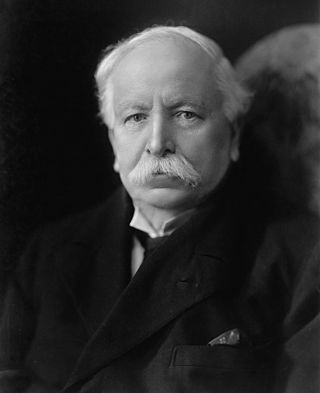
Sir John Langdon Bonython was an Australian editor, newspaper proprietor, philanthropist, journalist and politician who served as a member of the inaugural federal Parliament, and was editor of the Adelaide daily morning broadsheet, The Advertiser, for 35 years.
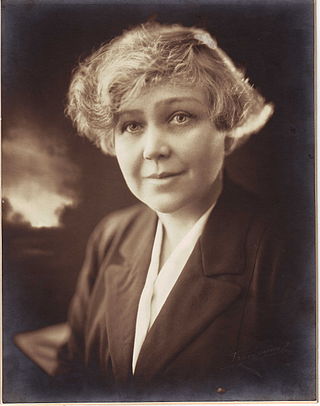
Helen Mary Mayo was an Australian medical doctor and medical educator, born and raised in Adelaide. In 1896, she enrolled at the University of Adelaide, where she studied medicine. After graduating, Mayo spent two years working in infant health in England, Ireland and British India. She returned to Adelaide in 1906, starting a private practice and taking up positions at the Adelaide Children's Hospital and Adelaide Hospital.
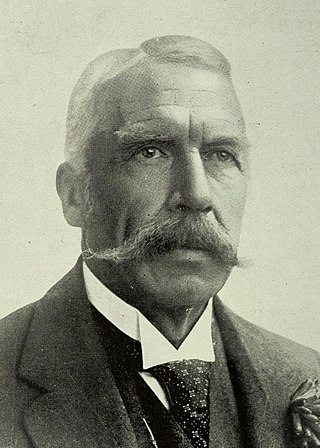
Sir Edward Charles Stirling was an Australian anthropologist and the first professor of physiology at the University of Adelaide.
Professor Susan Margaret Magarey, is an Australian historian and author, most notable for her historic works and biographies of Australian women.
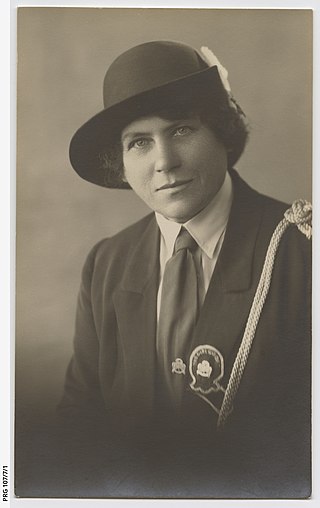
Adelaide Laetitia "Addie" Miethke,, was a South Australian educator and teacher who was pivotal in the formation of the School of the Air using the existing Royal Flying Doctor Service radio network.

Sarah Jane Young was an Australian political reformer.
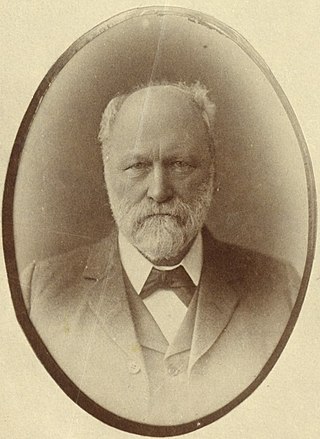
John Brodie Spence was a prominent Scottish-born banker and politician in the early days of South Australia. He was a brother of the reformer Catherine Helen Spence. And the father of Lucy Morice, a kindergarten worker, and social reformer.
Janet Allison Taylor Spence was an American psychologist who worked in the field of the psychology of anxiety and in gender studies.
Louise Bates Ames was an American psychologist specializing in child development. Ames was known as a pioneer of child development studies, introducing the theory of child development stages to popular discourse. Ames authored numerous internationally renowned books on the stages of child development, hosted a television show on child development, and co-founded the Gesell Institute of Child Development in New Haven, Connecticut.

The Advanced School for Girls was a South Australian State school whose purpose was to prepare girls to qualify for entry to the University of Adelaide. Founded in 1879, the school merged with Adelaide High School in 1907.

Albert James Hannan QC was a lawyer who was Crown Solicitor for South Australia for 25 years.

Sir Shirley Williams Jeffries was a member of the South Australian House of Assembly in three stints over twenty five years and an Australian rules footballer in the South Australian Football League (SAFL).
Catherine Helen Spence Memorial Scholarships are travelling scholarships founded by the South Australian Government in 1911 in recognition of the pioneering social worker and feminist Catherine Helen Spence.
Edith Agnes Cook, was in 1876 the first female student at the University of Adelaide, and second principal of the Advanced School for Girls in Adelaide, South Australia. She was later, as Edith Agnes Hübbe, principal of her own school in Knightsbridge, now Leabrook.
Thomas Hudson Beare was an early settler of South Australia, regarded as the colony's first storekeeper. His daughter Arabella has been cited as the first of the fleet to set foot on South Australian shores, and his wife Lucy as the first white woman to die in South Australia.

Constance Muriel Davey was an Australian psychologist who worked in the South Australian Department of Education, where she introduced the state's first special education classes.
Marielle Catherine Smith, also known as Marielle Feuerherdt Smith, is an Australian politician. She is a member of the Australian Labor Party (ALP) and has served as a Senator for South Australia since 2019.

Emily Dorothea Pavy was an Australian teacher, sociologist and lawyer. In 1912, she became the first Catherine Helen Spence scholarship recipient. While at London School of Economics, she researched the conditions of female factory workers and wrote a thesis named Welfare Work. She died in 1967.

Louise "Lucy" Morice was a kindergarten worker and social reformer from Adelaide, Australia. She was a founder of the Working Women's Co-operative Clothing Company, the Kindergarten Union of South Australia, Mother's and Babies Health Association, and the League of Women Voters of South Australia.